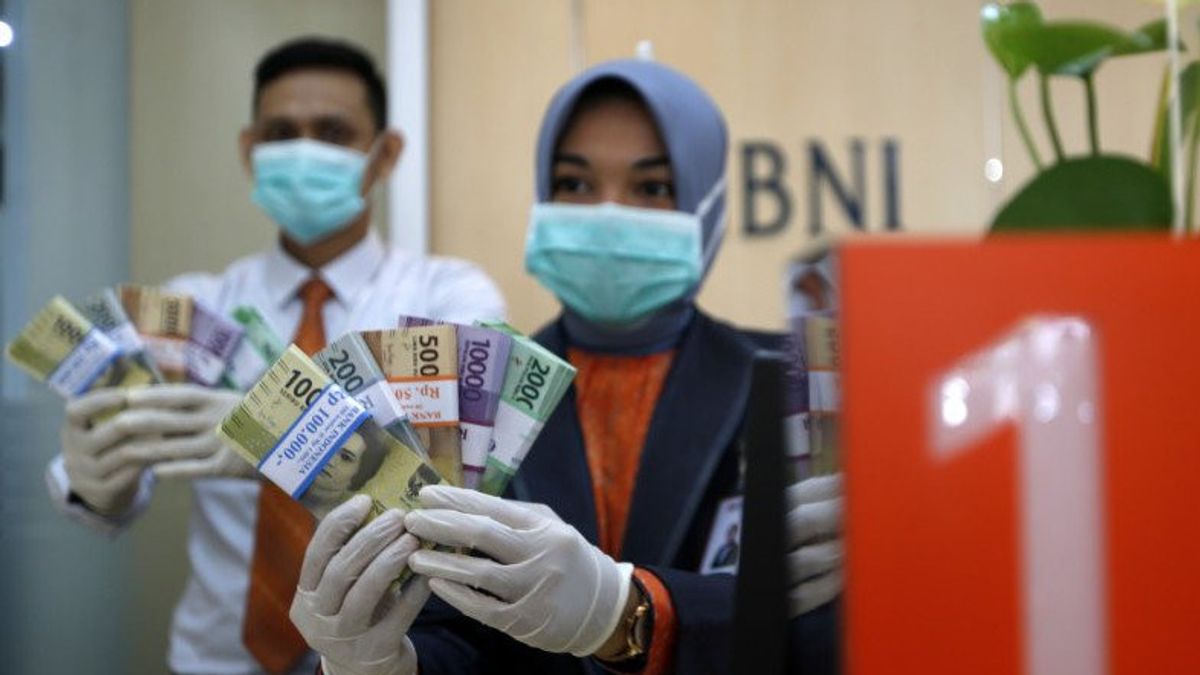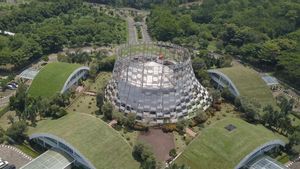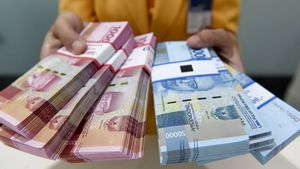JAKARTA - PT Bank Negara Indonesia Tbk. (BNI) is considered ready to expand this year following reports of a decline in the value of loans affected by restructuring.
Citing company data that was released today, Thursday, January 13, it was stated that until November 2021, credit restructuring affected by the COVID-19 pandemic amounted to IDR 79.38 trillion. This figure decreased by 22.47 percent compared to December 2020 which was Rp. 102.39 trillion.
As a result, this condition has a positive effect on BNI's Loan at Risk (LaR) ratio to 25.18 percent as of November 2021 from the previous 28.74 percent as of December 2020.
Senior Faculty of the Indonesian Banking Development Institute (LPPI) Amin Nurdin said this LaR indicates the ratio of risky credit or financing that is being monitored.
"The smaller the LaR value indicates the maintained quality of financing disbursed by banks," he said.
According to Amin, BNI's sloping credit-risk ratio allows the company to expand its intermediation quality. He said, this also had an impact on the allocation of the allowance for impairment losses (CKPN), which is also correlated with the profitability side.
"Here BNI can send a signal that the company is ready to support the financing needs of the business world. Some sectors that might be explored are agriculture, fisheries, animal husbandry, plantations (palm), and pharmaceuticals. Even though the pandemic has decreased, there will still be potential for growth in the pharmaceutical business," he explained.
The maintenance of the bank's Loan at Risk with the ticker issuer BBNI also brings fresh air to the improvement of the ratio of non-performing loans (NPL).
“The lower LaR and reduced NPL risk provide an opportunity for banks to expand credit. However, he said that this expansion must be carried out by banks carefully," he stressed.
Until the end of the third quarter of 2021, BBNI has succeeded in posting a profit of Rp. 7.7 trillion. This notch shot up 73.9 percent compared to the same period the previous year with Rp. 4.3 trillion.
It was revealed that the state-owned bank's funds were supported by fee-based income and net interest income, which grew by 16.8 percent and 17.6 percent, respectively, year-on-year (yoy).
In terms of liquidity, low-cost funds still dominate DPK with a portion of 69.7 percent or equivalent to Rp. 668.55 trillion. This record of cheap funds, aka current account saving account (CASA), makes BBNI move more freely.
Moreover, the ratio of lending to total funds received (loan to deposit ratio / LDR) is still quite open with 85.14 percent. This level is relatively wide from the upper limit of about 92 percent. Thus, there is still room for expansion for BNI.
The English, Chinese, Japanese, Arabic, and French versions are automatically generated by the AI. So there may still be inaccuracies in translating, please always see Indonesian as our main language. (system supported by DigitalSiber.id)













